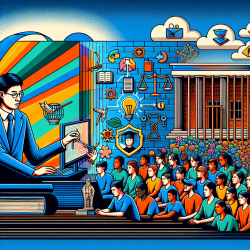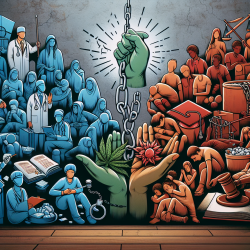The School-to-Prison Pipeline: A Pause and Its Implications
The term "school-to-prison pipeline" refers to the troubling trend where students, especially those from marginalized communities, are funneled from the educational system into the criminal justice system. This pipeline is often fueled by harsh disciplinary policies such as zero-tolerance rules, out-of-school suspensions, expulsions, and referrals to law enforcement. The pandemic-induced shift to virtual learning temporarily disrupted this pipeline, leading to a significant reduction in juvenile court referrals.Key Findings from the Study
The study highlighted several critical points:- There was a 27% reduction in the adolescent detention population between March and May 2020.
- Data suggests that fewer court referrals did not result in increased societal crime, implying that many of these referrals may not have been necessary.
- Virtual learning exacerbated existing educational inequalities, particularly for students with disabilities and those from low-income families.
- Public budget cuts and the ongoing pandemic could lead to a resurgence of the school-to-prison pipeline as schools return to in-person learning.
Strategies for Practitioners
Practitioners can take several proactive steps to mitigate the resurgence of the school-to-prison pipeline and better support at-risk students:1. Promote Coping Strategies
Encourage students to develop coping mechanisms before disciplinary issues arise. This could involve:- Mindfulness exercises
- Stress management techniques
- Regular check-ins with a counselor or therapist
2. Educate Families
Families should be well-informed about the special education process and the protections it offers regarding suspensions and expulsions. This knowledge can empower them to advocate effectively for their children.3. Advocate for Structural Changes
Collaborate with local school and judicial systems to implement school-justice partnerships. These multidisciplinary initiatives aim to address student misconduct through community-based strategies rather than punitive measures.4. Utilize Online Therapy
Online therapy services, like those provided by TinyEYE, can play a crucial role in supporting students' mental health needs, especially those who are most vulnerable to falling into the school-to-prison pipeline.Encouraging Further Research
While the findings from this study are promising, they also highlight the need for further research. Practitioners should stay informed about the latest studies and be open to integrating new strategies into their practice. By doing so, they can contribute to a more equitable and supportive educational environment for all students.To read the original research paper, please follow this link: The pandemic paused the US school-to-prison pipeline: potential lessons learned.










